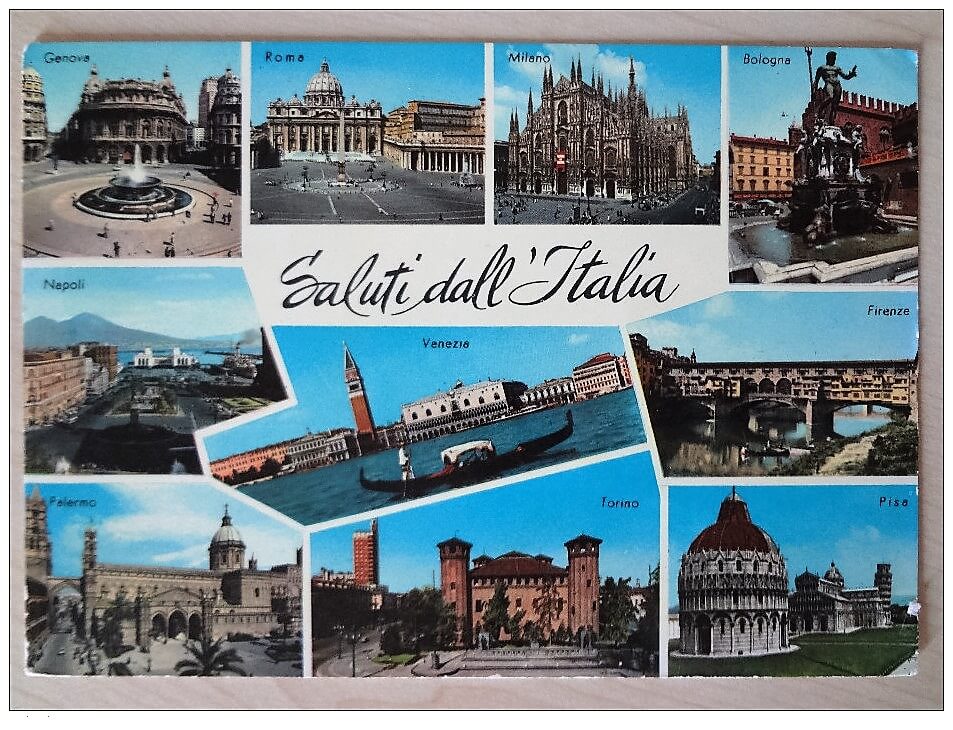Commentary
Cultural heritage torn to pieces
In the coming days, the controversial provisions handing so-called ‘differentiated autonomy’ to three northern Italian regions are set to be approved. In a nation founded on the preservation of a diverse cultural history, these laws will destroy Italian unity.

The feeling of being Italian and the sense of citizenship and belonging to our country are closely linked to the heritage of our culture, which has been accumulating for millennia on the Italian territory. As Ranuccio Bianchi Bandinelli wrote in 1974: “Italy is rightly regarded as the country that is the richest in artistic monuments, visible signs of a most advanced civilization that was once a lesson and model to all Europe; the country where the historical layers of sedimentation have only gotten thicker and more dense, and these historical layers have left such rich traces everywhere as are unequaled by any other country. It is this layering that gives Italy and Italians a particular way of being, the very essence of our personality.”
In the coming days, the novel and ill-fated provisions regarding so-called “differentiated autonomy” are set to be approved, aimed at widening the gulf between the central government and the three secessionist regions, Veneto, Lombardy and Emilia-Romagna, which want to make unconstitutional changes that go against the notion of Italian unity, including taking over the exploitation and—unbelievably—the protection of our cultural and environmental heritage.
Legislative authority over the country’s patrimony is a prerogative of the Republic and of the nation, and thus of the Ministry of Cultural Heritage—and not of the three regions. By asking for the functions and the domains of competence of the Superintendencies (local bodies of the Ministry of Cultural Heritage) to be transferred to them, they are violating Article 9 of the Constitution, which reads: “The Republic promotes the development of culture and scientific and technical research. It protects the natural landscape and the historical and artistic heritage of the Nation”—a provision included in the first part of the Constitution, which is, in theory at least, absolutely untouchable.
After the amendment of Title V of the Constitution—promoted and passed by the center-left in 2001 by a margin of one vote—the exploitation and the protection of cultural and natural heritage became the subject of negotiations between the state and the regions. In the new draft, according to the agreement concluded between the Veneto region and the current government on May 15, we read, in Art. 42 (entitled “Protection of Cultural Heritage”): “The legislative competence in the matter of the protection of cultural heritage, in the meaning set out in Art. 117 of the Constitution, with respect to cultural goods, both immovable and movable, present on the territory of the region, as well as the corresponding administrative competence, are assigned to the Veneto Region.”
This article contains an obvious ideological fraud put forward by the would-be secessionists: the attribution of “protection” to the regions while invoking Art. 117 of the Constitution, which actually says that what is a matter of negotiation between the local and central authorities is the manner of exploitation, not the protection of such goods.
Even more disturbing is Art. 47 of the same draft, where, under the title “Regionalization of the Superintendencies” (sic!)—which somehow didn’t raise any objections from Conte—we read the following disturbing claims: “1) In order to ensure the exercise of the functions referred to above, the functions exercised by the Archaeological, Fine Arts and Landscape Superintendencies, as well as the archival and bibliographical Superintendencies present within the region, together with the attributions of the relevant human, financial and material resources, are transferred to the Veneto Region.”
And: “2) The museum network, as well as the cultural institutions and venues belonging to the state … together with the attributions of the relevant human, financial and material resources, are also transferred to the Veneto Region.”
How is it possible that anyone would even demand—and be likely to get—a regionalization of the Superintendencies for just three regions, without a reform of the comprehensive attributions of the Ministry, which would need to be debated in the Council of Ministers and in the Parliament?
Regarding the natural landscape, the environment and their protection, in Art. 47, paragraph 1 of the draft we find the requests made by the Veneto region (against which there was no pushback from the government) that it should receive the full responsibility for landscape protection, for all constraints on activities, both older and newer, and for the issue of future ones, as well as, according to Art. 48, ”all the related functions of the Superintendencies present in the region in the matter of the natural landscape.”
Not to mention that, while in the grip of this openly secessionist frenzy, Salvini now wants to get his hands on the Superintendencies and wants to appoint the directors of museums, such as the Brera. In his lust for political control over state bodies which should be politically neutral, Matteo Salvini is benefiting greatly from the Franceschini reform (one should not forget that Renzi himself wrote that “‘Superintendent’ is one of the ugliest words in the bureaucratic vocabulary”). That reform went almost to the point of allowing museums, currently autonomous, to be converted into private foundations, together with local cultural entities.
If these changes, which are unconstitutional and undermine Italian unity, are actually approved, the protection and exploitation of our cultural and natural heritage, on which our common national feeling is founded, would no longer be prerogatives of the state, but would be carved up into small pieces for each region, and might no longer serve as a unified bulwark against the burying and final obliteration of the past. The result would be that the historical connective tissue that holds the country together, that “particular way of being, the very essence of our personality,” of our being Italian, would be destroyed forever.
Originally published at https://ilmanifesto.it/il-patrimonio-culturale-fatto-a-pezzi/ on 2019-07-11
